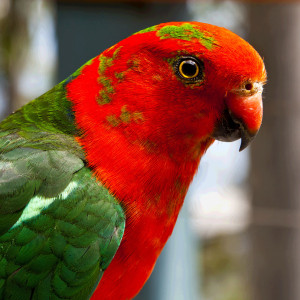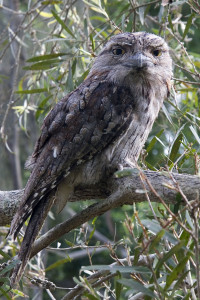The island is still home to many different native birds, animals and reptiles, however, the presence of people and domestic animals has decreased the number of species. Koalas and goannas can no longer be found on Scotland Island.
You may have already noticed the increased number of sick brush-tailed possums as well as rainbow lorikeets and cockatoos suffering from parrot viruses known as ‘runner syndrome’ and ‘beak and feather’ disease respectively.
All these symptoms can be directly attributed to the actions of people. We need to protect our biodiversity by co-existing with the species that remain. Here’s help in how to do it.
Tips for living with native animals
Please do not:
- Feed native birds and animals! Food supplied by well-meaning people results in:
- increased sickness from calcium and other food deficiencies eg. lean beef or mince, is very poor in calcium and many of the birds and suffer from calcium deficiency; i.e. soft beaks, brittle bones and poor feather growth
- an over-abundance of some species and the disappearance of others, which can have a serious effect on small bird populations. You may have noticed we have many large birds, but very few small birds such as finches or wrens.
- Let your pets run free: Cats hunt and kill birds and other small wildlife — it’s in their nature to do so! Dogs can attack possums and harass echidnas. Domesticated animals can spread disease to native animals.
- Destroy the native plants on your land.
Please do:
- Protect the natural habitat
- Protect your property against bushfires
- Plant native species in your garden
- Control your pets
Report sick or injured wildlife
If you find an injured, unwell or orphaned native animal, please call a licensed wildlife rescue organisation such as Sydney Wildlife (9413 4300) or WIRES (1300 094 737).
- Do not handle the animal if it is a flying-fox (also known as a fruit-bat) or another species of bat, but contact Sydney Wildlife or WIRES who will send a trained wildlife carer to respond.
- If you come across a large seabird or marine animal such as a seal, sea turtle, dolphin, shark or whale on a local beach that may require protection or care, please contact Council on 1300 434 434. If possible, please take note of whether the animal appears to be in distress or is simply resting. This will allow us to determine whether the animal needs specialist care from an organisation such as ORRCA or Australian Seabird Rescue.
- Catch the animal safely by throwing a towel over it
- Handle it as little as possible
- Put it in a box so that it can’t escape, and placing the box in a warm, quiet, dark room.
Planting appropriate native plants can help to restore the balance between wildlife and humans. See Planting and Weeding for more information.


